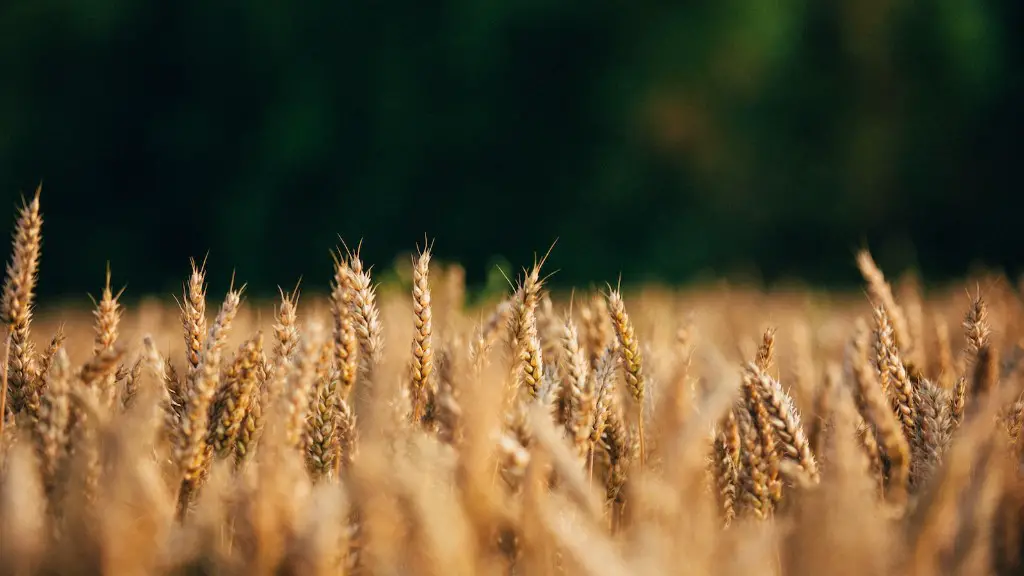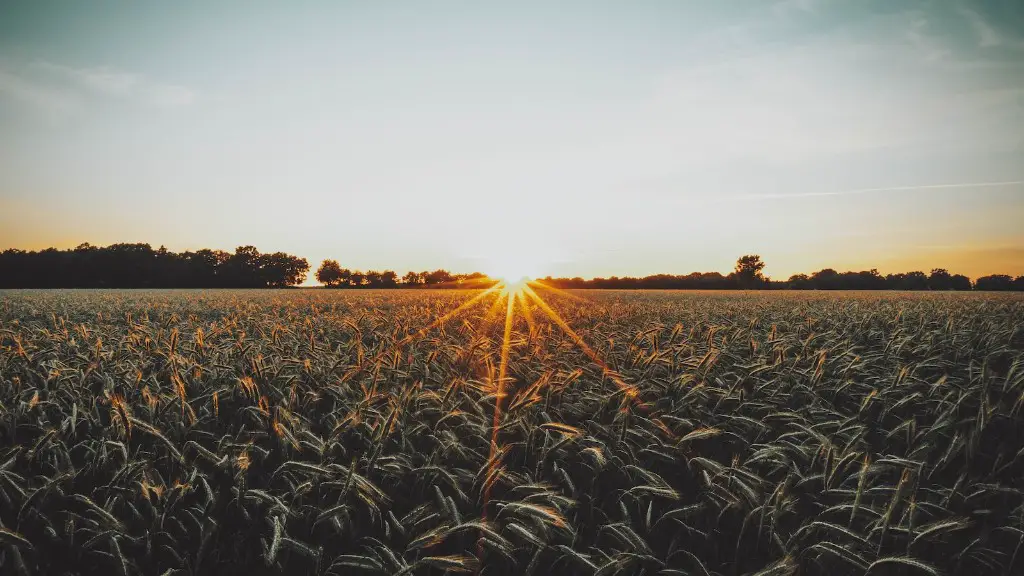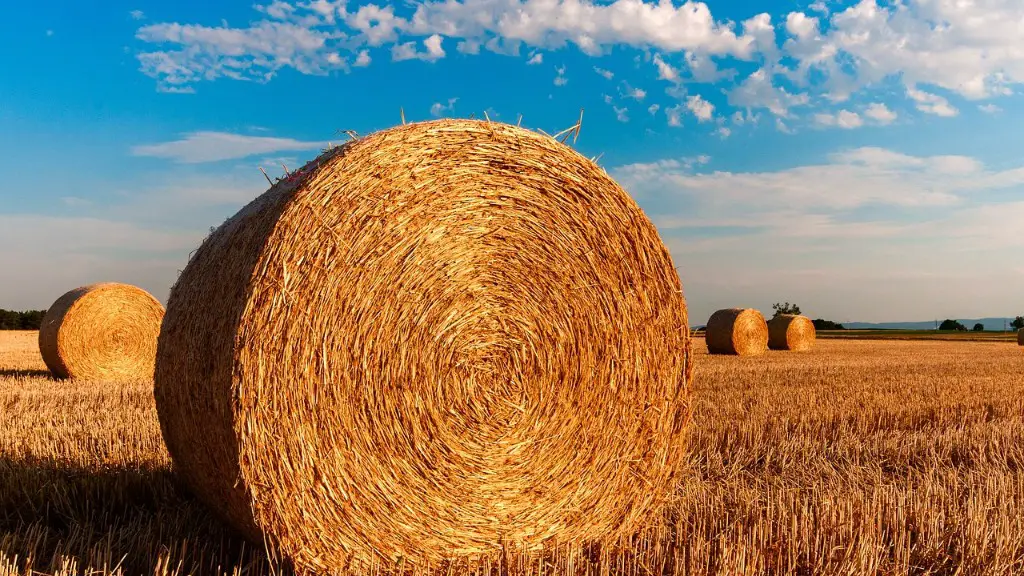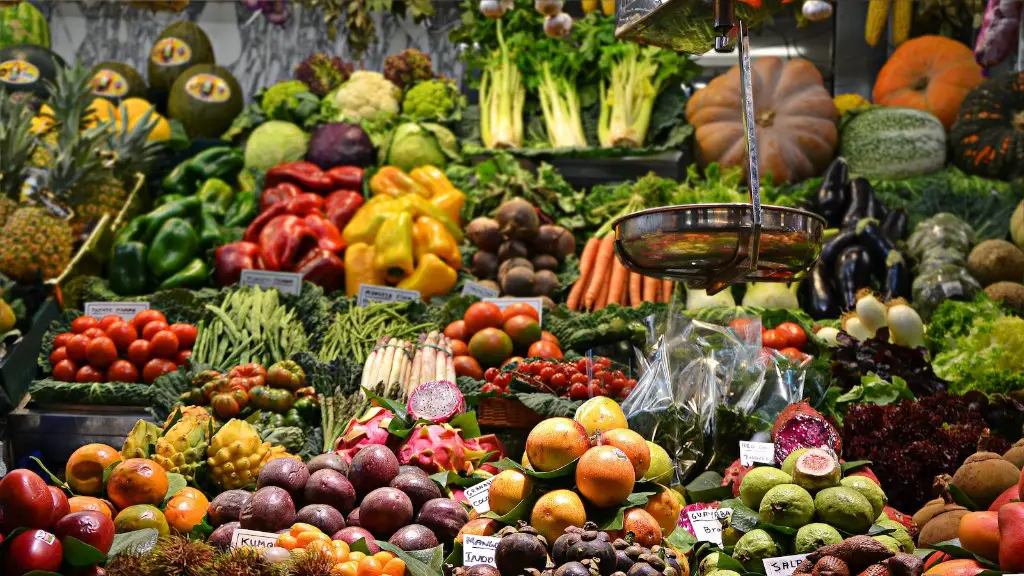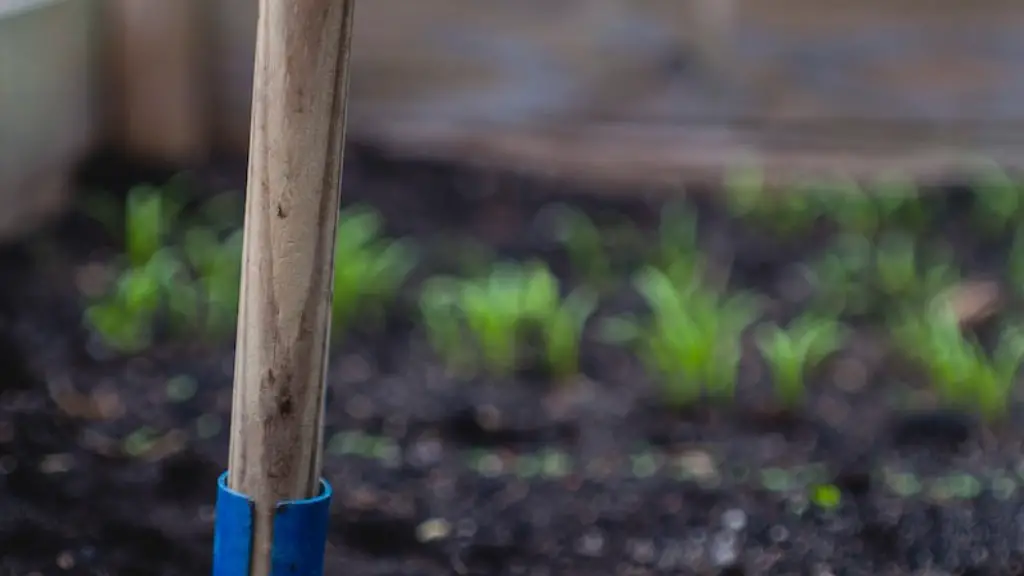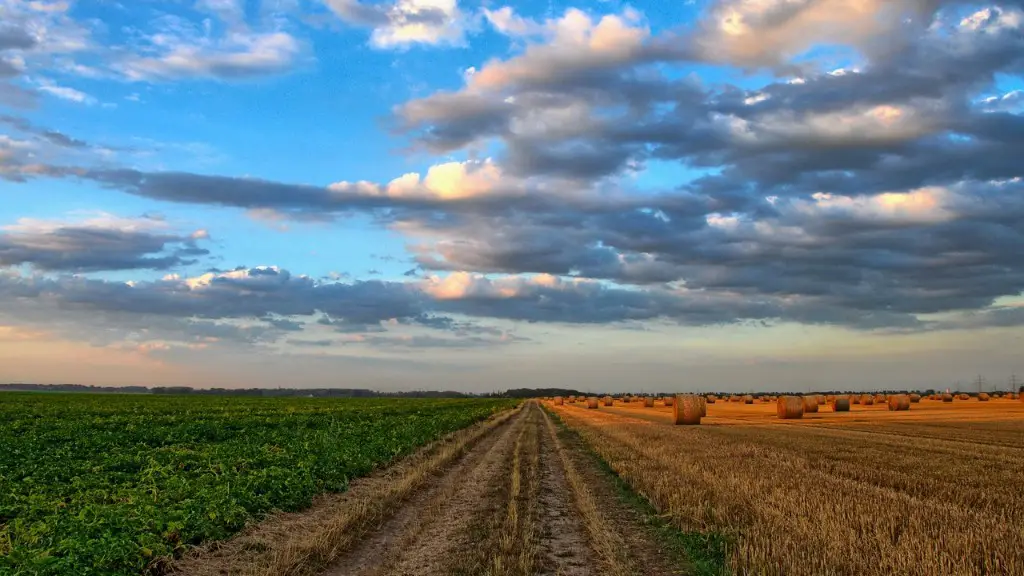Agriculture is the science and art of cultivation, including the cultivation of soil for the growth of crops and the rearing of animals to provide food, wool, and other products.
The uses of agriculture are vast and varied. Agriculture is used to produce food for human consumption, beverages, feed for livestock, fuel, and dozens of other products. Agriculture is also responsible for the stewardship of natural resources, such as water, soil, and plants.
What is the use of agricultural?
Agriculture is the main source of food and materials for many people around the world. Crops such as cotton, wool, and leather come from agricultural sources, as do products like wood and paper. The methods used in agriculture can vary greatly from one region to another.
Agriculture has a huge impact on our daily lives, even though we may not always realize it. Here are seven ways that agriculture affects us on a daily basis:
1. Food: Obviously, agriculture is responsible for the food we eat. But it’s easy to forget just how much we rely on agriculture when we have access to such a wide variety of food all year round.
2. Fuel: agriculture is also responsible for the fuel we use. Ethanol, for example, is a biofuel made from corn. And biodiesel can be made from a variety of plant oils.
3. Textiles: many of the clothes we wear are made from plant fibers like cotton and linen.
4. Sleep: even our bedding is often made from agricultural products. Cotton sheets are a popular choice for many people.
5. Sports: many sports rely on agricultural products. Golf balls, for example, are typically made from rubber, which comes from trees.
6. The economy: agriculture is a vital part of the economy, both in terms of the jobs it provides and the products it produces.
7. Personal care products: a lot of the personal care products we use every day, such as soap and
What are 3 benefits of agriculture
1. It’s the main source of raw materials: Agriculture is the main source of raw materials for many industries, including the textile, pharmaceutical and food industries.
2. It’s important to international trade: Agriculture is a vital part of international trade, with many countries relying on exports of agricultural products to earn revenue.
3. It plays a big role in a nation’s revenue: Agriculture is a major contributor to a country’s GDP, with the sector often accounting for a significant proportion of a nation’s earnings.
4. It provides employment: Agriculture is a major source of employment, with millions of people around the world working in the sector.
5. It’s crucial to a country’s development: Agriculture is essential for a country’s development, as it helps to provide food and income for people, as well as raw materials for industries.
6. It can help heal the environment: Agriculture can play a key role in environmental protection, with sustainable practices helping to improve soil health and reduce pollution.
7. It goes hand-in-hand with war: Agriculture is often a key factor in times of war, with food and other resources often being used as a weapon.
8. It’s a vital part
Agriculture is the main source of raw materials to major industries such as cotton and jute fabric, sugar, tobacco, edible as well as non-edible oils. Moreover, many other industries such as processing of fruits as well as vegetables and rice husking get their raw material mainly from agriculture.
How do agriculture help the people?
Agriculture is critical for achieving food security and promoting sustainable agriculture. In order to achieve the second UN Sustainable Development Goal of zero hunger by 2030, it is essential that agriculture plays a central role in safeguarding the region’s food supply. Agriculture is also essential for maintaining regional food security.
Agriculture’s share of the overall US economy has been steadily declining over the past few decades. In 2021, agriculture, food, and related industries contributed roughly $1264 trillion to US gross domestic product (GDP), a 54-percent share. The output of America’s farms contributed $1647 billion of this sum—about 07 percent of US GDP. This is a significant decline from the 21 percent share of GDP that agriculture accounted for in 1950. The decline is due in large part to the increasing mechanization of agriculture and the consolidation of farms into larger operations.
What is the most important agricultural?
The most valuable crops and livestock products in the world are chicken, maize, wheat, and soybeans. The country with the highest gross production value for chicken is the United States, while the country with the highest gross production value for maize is Mainland China. For wheat, the highest gross production value is in Mainland China, and for soybeans, the highest gross production value is in the United States.
Agricultural products are essential for human survival as they provide the raw materials for food, shelter, and clothing. Crops for food, silk for cloth, and wood for shelter are all examples of agricultural products that are essential for our survival.
Why is agriculture important 10
Agriculture is the backbone of the Indian economy and it plays a crucial role in the economic development of the country. The sector employs more than half of the country’s workforce and contributes to around 15% of the GDP. With the vast majority of the population dependent on agriculture for their livelihood, it is essential that the sector grows at a healthy rate.
One of the key ways in which agriculture can contribute to economic development is by increasing the rate of capital formation. This can be achieved by increasing investment in the sector, which will lead to higher productivity and incomes. The government has been taking various steps to promote investment in agriculture, such as providing subsidies and tax breaks. However, more needs to be done to make the sector more attractive for investors.
Other than boosting capital formation, agriculture can also contribute to economic development by generating employment. The sector has the potential to create millions of jobs, especially in rural areas. This will not only lead to higher incomes for people but will also help to reduce poverty and inequality.
Thus, it is clear that agriculture plays a vital role in economic development and the government needs to take more measures to promote the sector.
Agriculture contributes to many environmental issues that can cause environmental degradation. These issues include climate change, deforestation, biodiversity loss, dead zones, genetic engineering, irrigation problems, pollutants, soil degradation, and waste. While some of these problems can be addressed with better management and technology, others will require more fundamental changes in the way we farm and produce food.
How did agriculture help the world?
The invention of agriculture is one of the most important turning points in human history. Unlike hunter-gatherer societies, which are limited in their ability to produce food, farming allowed people to grow all the food they needed in one place. This led to a massive population growth, creating cities and trade. Agriculture also allowed for the domestication of plants and animals, which led to the development of civilizations.
Agriculture is critical to human life. It provides food, clothing, and shelter. It helps people to enjoy a higher quality of life. Agriculture is a complex system that involves many different aspects, including weather, soil, water, plants, and animals.
How much agriculture is important
Despite the agriculture sector’s crucial role in the Indian Economy, there is a constant drop in this sector while the service sector is comparatively improving. The sector contributes roughly 14% of the country’s total GDP. The Government is taking steps to improve the condition of farmers and the sector by implementing various schemes like Pradhan Mantri Fasal Bima Yojana, Pradhan Mantri Krishi Sinchai Yojana etc. However, more needs to be done to ensure the sustainability of the sector.
Sustainable agriculture is a huge benefit to the environment, as it helps to preserve the earth’s natural resources. In addition, it helps to maintain soil quality, reduce erosion, and preserve water. All of these benefits help to keep our planet healthy and habitable for future generations.
What will happen without agriculture?
Agriculture is the foundation of civilization and any stable economy. It is the primary source of food, fuel, and fiber for the world. Without it, it is not possible to have a city, stock market, banks, university, church, or army.
Agriculture plays a vital role in the Indian economy. It is the backbone of our economy contributing around 17% to the total GDP. It provides employment to over 60% of the population making it one of the largest sectors in India. The sector is also responsible for the overall development of the country. There has been a lot of government initiatives in recent years to develop the sector further. The Pradhan Mantri Fasal Bima Yojana is one such scheme which aims to reduce the financial risk of farmers and help them get better insurance coverage. The government is also working on increasing the irrigation facilities and providing better access to technology and markets to the farmers. We need to continue our efforts to make agriculture a more viable and prosperous sector in India.
Final Words
The primary use of agriculture is to produce food for humans and animals. Agriculture also provides other products such as fuel, fiber, and building materials.
Agriculture is the science and art of cultivating plants and livestock for food, fiber, and other products used to sustain and enhance human life. Agricultural products are derived from domesticated plants and animals and their byproducts. They include food crops and grazing forage for livestock; fibre crops such as cotton, wool, and flax; fuel crops such as wood and other plant matter used for biofuels; and horticultural crops grown for their beauty or ornamental value.
